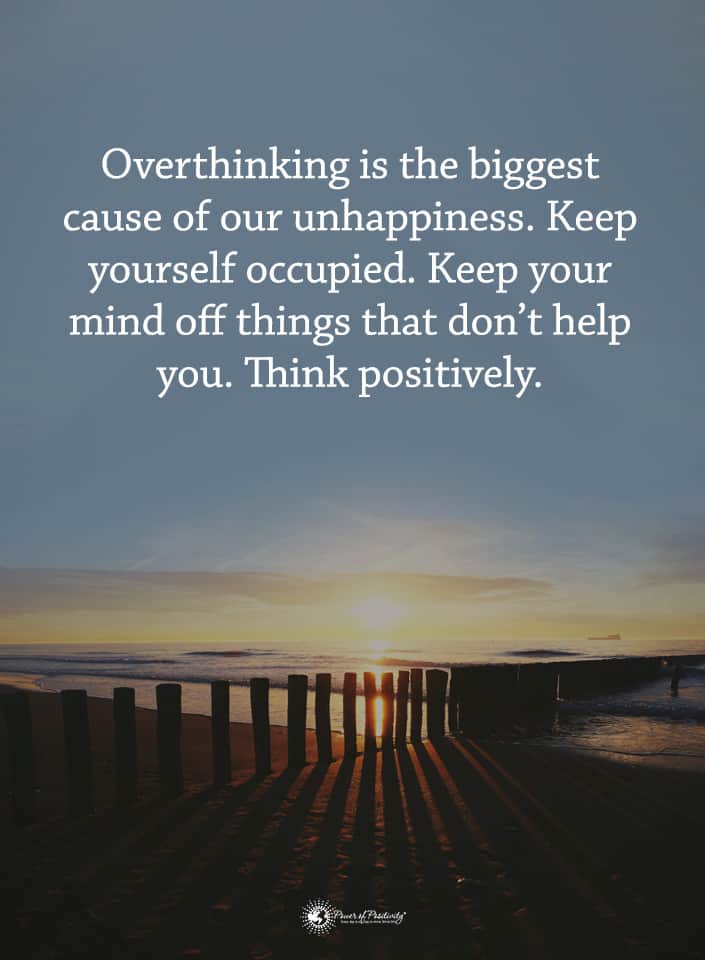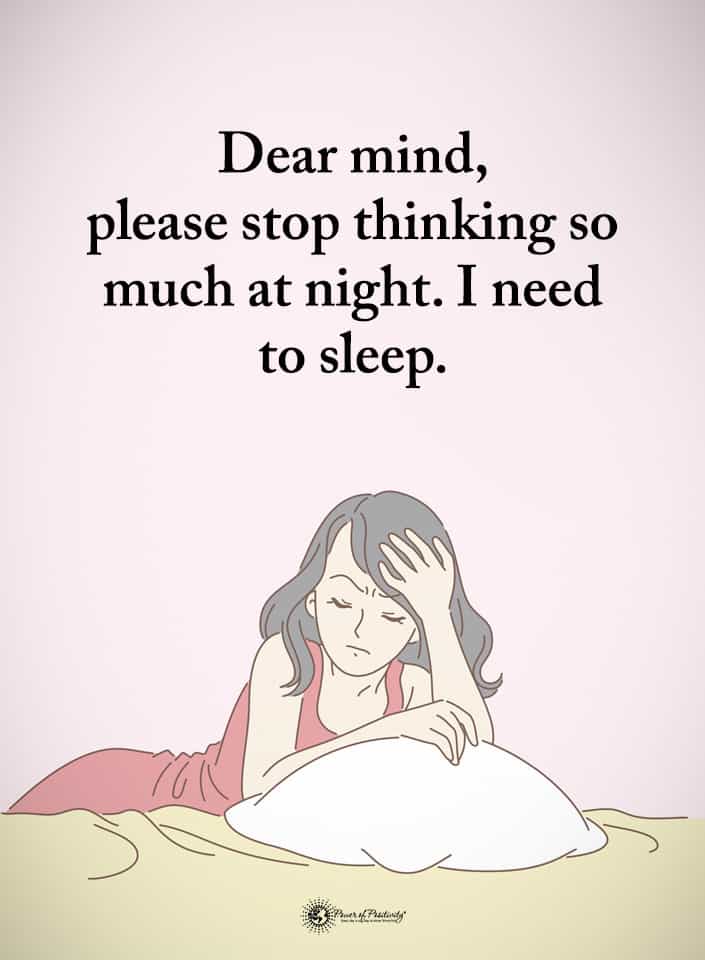At one time you were full of energy, but now you feel tired all the time. Perhaps you can’t get things done at home or work. Don’t worry, you’re not alone in your tiredness.
Studies show that approximately 38% of the population in the United States complain about feeling fatigued. So, what habits could make you feel tired? And how can you fix them?
When we find ourselves down, we fall into bad habits.
We’ll aimlessly browse the web, pick up the same magazine or book to put it right back down, walk into some room for seemingly no reason. We feel just sort of “Blah.”
Complicating all of this is the human tendency of subconsciously cultivating bad habits, which exacerbates that underlying restlessness. None of us are exempt from such criticism, either.
These habits drain our energy and render any positive feelings suppressed or mute. The current predicament has intensified these tendencies as yet another source of internal conflict.
Fortunately, the remarkable human mind has the ability, whether we realize it or not, to pull us out of the muck!
Fifteen Habits That Make You Feel Tired (and tips on how to put the pep back into your step)
Let’s discuss some of those fifteen habits that trigger our exhaustion. Also, let us look at how we might fix them.

1 – Negative thoughts
Negative thoughts weigh you down. You waste a lot of energy dwelling on negativity which can make you feel tired and worn down. Negativity causes you to see life through a negative lens causing you to be fearful and angry.
These emotions eat away at your mental stamina. You might feel too tired to think about anything. Turning your negative thoughts into positive ones can have a big impact on your energy level.
When you can’t change your surroundings, adjust your attitude! Positive people are more optimistic, happier, and healthier.
Studies found there’s a link between your attitude and your mental and physical health. Staying positive doesn’t mean you ignore difficulties, it just means you’re able to balance out your negative thoughts so you don’t slide into a negative mindset.
2 – Lack of exercise
Doctors suggest adults get at least 2.5 hours of exercise per week. Whether you walk, swim, garden, dance, or ride your bike-get some exercise. Exercise improves your brain function making you mentally more sharp and able to tackle problems with less stress and clarity.
Sitting around isn’t good for your mental health. It makes you feel sluggish, mentally foggy.
Start exercising for a brief time each day. Over time, increase the time you exercise until you’re doing approximately 35 minutes of heart-pumping exercise a day.
3 – Lack of sleep
Lack of sleep lowers your energy level and makes you feel tired all the time. It’s important to keep a regular sleep routine.
Try these suggestions to prepare for bed:
- Regular bedtime
- Turn off the cell phone and computers about an hour prior to bed. The blue screen from these devices limits your body’s production of melatonin so you can’t fall asleep at night.
- Make sure your bedroom is cool or warm enough.
- Keep your room dark, light inhibits your body from falling asleep and staying asleep. This means no cellphones, no illuminated alarm clocks, or night lights.
- Don’t eat your evening meal too late. If you eat later, your body is digesting your food which will keep you awake at night.
- White noise-some people sleep better if they have white noise. Try setting up a fan or sound machine in your bedroom to help you fall asleep.
4 – Feeling judged
If you feel judged by others, it’s difficult to know how to relate to them. These kinds of people argue about everything you say, critiquing your clothes, hair, and what you do. Feeling judged causes stress and anxiety which makes you feel tired and weary. It’s difficult to break free of others’ judgment, especially if you’re not sure what you did to deserve it.
Over the long-term, this judgment can weigh on your mind and cause restlessness.
Break free from toxic relationships. Find new friends. Limit the time you spend with toxic family members. If they ask why you’re never around, be honest. Explain that you’re uncomfortable around them. You want to be happy and healthy so for now, you’re limiting your time with them. This could make them angry which is your signal to take a break from this relationship.
5 – Medical problems
If you’re feeling tired all the time, you may have an underlying medical condition. In fact, tiredness is often the first symptom that motivates you to see your doctor. Medical problems that cause tiredness include
-
Anemia:
Anemia or iron deficiency means you lack enough iron in your body. Iron makes red blood cells and transports oxygen to your body’s tissue. Symptoms are tiredness and shortness of breath. Your doctor can run tests to see if you are anemic. Don’t take iron supplements without your doctor’s knowledge. Too much iron is as dangerous as not enough.
-
Thyroid problems:
Hypothyroidism causes you to feel sluggish, tired, and sometimes depressed. A simple blood test can reveal if you have thyroid problems making you tired.
-
Diabetes:
High blood sugar levels cause fatigue, extreme tiredness. If your blood sugar levels are balanced you can regulate your diabetes and restore your energy levels.
-
Chronic fatigue syndrome:
A exhausting illness that causes extreme fatigue. There isn’t a known cause or cure for this illness.
-
Heart disease:
Feeling tired all the time is a symptom of heart problems.
-
Deficiencies of vitamins or minerals:
If you lack certain vitamins or minerals, you may feel extreme tiredness. Ask your doctor to run blood tests to see if you are low in vitamins and minerals. Typical vitamin deficiencies that cause tiredness include Vitamin B12, potassium, Vitamin D, and magnesium.
6 – Poor diet
Eating poorly affects your energy levels. Eating too high fat or high-sugar foods will make you sluggish and tired. These foods can’t give you the long-term energy you need each day. Eating a poor diet long term also causes weight gain which can affect your energy level. Changing your diet is a simple way to boost your energy levels. A healthy diet should include:
- Fruit and vegetables
- Carbohydrates-Brown rice, whole wheat grains, oats or quinoa
- Dairy- dairy alternatives like almond milk
- Proteins-Beans, eggs, meat, fish
- Fats-olive oil
7 – Anxiety
A proverb says, “ Worry weighs a person down; an encouraging word cheers a person up.” Proverbs 12:25. It’s true. Anxiety or worry is trying to control or figure out things that you may not figure out or control. Anxiety eats away at your sense of well-being, you can feel tired from this. Strangely enough, your anxiety and worry won’t change a situation.
Evaluate what is causing your anxiety. Admitting worry isn’t bad, but constantly dwelling upon your anxieties isn’t healthy for you.
Ask yourself if there is an action you need to take? Are there people you need to talk to? If not, try to find little ways to let go of your anxiety.
Try meditation or prayer to ease your anxiety levels. Talk to a trusted friend about your worries, ask her for help to let go of your anxiety. Keep a gratitude journal. Write down the things you’re grateful for. Write down what makes you most anxious. Compare your lists. Work towards writing more things you’re grateful for than things you are anxious about.
8 – Trying to keep everybody happy
Are you a people pleaser? If so, you’re probably an unselfish, loving, kind-hearted person, prone to trying to keep everybody happy. You can’t keep everybody happy all the time, so you will end up burnt out from all your hard efforts.
If you know you have a tendency to be a people-pleaser, you may come up with strategies to prevent burning out. Take time for yourself, resist the urge to say “yes” when you are asked to do something. Instead, give yourself 24 hours to decide.
Step back and figure out what your priorities are. Do you really need to be in charge of three ministries at your church plus your child’s class parent volunteer and teach yoga class five days a week?
Set boundaries. Saying no might be the energy boost you need.
9 – Stress
There are different types of stress. Examples of stress include:
Every day stress: This is regular stress you might experience at work, family, or school.
Sudden negative stress: Sudden stress includes illness, loss of a job, a sudden change, divorce
Traumatic stress: Accident, war, assault, or a natural disaster are a form of traumatic stress. If you’re put into grave danger, you will experience traumatic stress.
There are different ways to cope with stress depending upon the stress you’re going through. But stress can wear you down and make you worn out. If you’re always tired, you may need to assess your stress levels. Are you experiencing an unusual amount of stress at home or work?
Is there some way to reduce this stress? If not, deal with stress through exercise, yoga, getting enough sleep, and eating a healthy diet. Doing these things will lower your tiredness level and improve your energy.
10 – Lack of socialization
Humans are social creatures. You need interaction with other people. If you aren’t getting enough people time, you may feel tired and listless. You need time to hang out with friends and family.
So social relationships affect your mind and body. Connect with your friends and family members in person or online. Call they on the phone. Or, send a quick text just to let them know that you care.
11 – Boredom
Not staying busy enough makes you tired. If you’re bored all the time, you may feel you have no purpose. Life can disappoint and make you feel like it’s not worth living. You’re made to stay busy whether that’s helping others, gardening, going to exercise class, or redecorating your home.
Don’t fall into the trap that says if you have nothing to do you’d be happier, it’s a lie. Busy people are happier people.
12 – You’re overweight
Many studies establish a strong link between obesity and sleeplessness.
If you are overweight, you’re apt to feel more tired because carrying extra weight is hard on your joints, your heart, and your entire body. Climbing the stairs takes effort, so it’s no wonder you feel tired all the time. Your body’s working overtime to keep up.
So try to cut back on high fats and too many carbs. Include exercise into your day, this will help you lose weight faster.
13 – Depression
Depression causes you to feel tired and drag throughout each day. If you are experiencing depression, talk to your doctor about your treatment options. You can’t just snap out of depression, it takes time.
Mental health counseling can help you feel better and deal with your negative thought patterns. Exercise, yoga, and eating a healthy diet will also help relieve your depression symptoms.
14 – Major life events
Divorce, changing jobs, or moving are all life events that can be exhausting. Change is hard, it zaps your strength. Everyone goes through big life events. The challenge is to not allow the event to drain you of your energy.
Look for the positive in your life. Keep a gratitude journal or reflect on the best parts of your life.
15 – Grief
One study explains that many who lose a loved one will suffer from “complicated grief”. This grief makes it more difficult to adjust to your loss. It’s extended grief that can affect your thoughts causing you to feel exhausted by these thoughts. It’s hard to adapt to loss, but generally, you will feel better as time goes on.
Don’t be too hard on yourself. If you think you are suffering from complicated grief, talk to your doctor, or seek a counselor. These professionals can guide you through the mourning process.
Six healthy ways to boost your daytime energy as you begin to form healthier sleep habits.
Once you begin making the changes you need to your habits, you will feel tired less and less. In the meantime, here’s how you can boost your daytime energy levels.
1 – Drink lots of water
it sounds simple, but water can help boost your energy levels. It’s easy to forget to drink enough water during the day.
2 – Exercise
Increasing your activity helps lower stress and tiredness. Exercising boosts your mood and makes you more productive which makes you feel happier about your life.
3 – Choose good foods
Eating a well-balanced diet gives you energy and improves your mood.
4 – Get enough sleep
Aim to get a least seven hours of sleep a night. Keep a regular bedtime routine so your body will wind down when it’s time to sleep.
5 – Limit your alcohol
The recommended amount of alcohol per day is one 5 ounce glass a day. This doesn’t mean you need to give up your evening glass of wine, just be conscious of how much you’re drinking. Too much alcohol can affect your sleep and make you tired during the day.
6 – Stop smoking
Smoking induces fatigue and low energy. If you smoke, talk with your doctor to learn some strategies to stop smoking. There are many helpful medications to make it easier to quit the habit.
Final Thoughts on Identifying Why You Feel Tired…and Finally Get Some Rest
Once you step back and take an impartial inventory, you will be able to identify why you feel tired. Commit to making the changes needed to counteract the bad habits you developed so you can finally get the slumber you crave. You deserve it!
















 Community
Community

